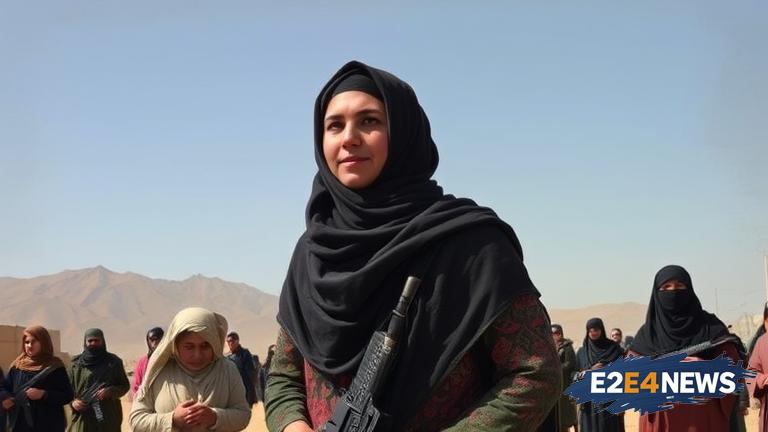The Taliban’s regime in Afghanistan has been marred by a relentless crackdown on women’s rights, with the latest restrictions imposed on their freedom of movement, education, and employment. Despite initial promises to respect women’s rights, the Taliban has reneged on its commitments, instead opting for a hardline approach that has drawn widespread condemnation. The Taliban’s Ministry of Vice and Virtue has been instrumental in enforcing these restrictions, with its morality police tasked with ensuring compliance. Women are now required to wear the burqa in public, and are forbidden from traveling without a male chaperone. The Taliban has also restricted women’s access to education, with many schools and universities closed to female students. Furthermore, women are no longer allowed to work in certain professions, such as journalism and law. The international community has been vocal in its criticism of the Taliban’s policies, with many countries and organizations calling for the restoration of women’s rights. The United Nations has expressed deep concern over the situation, with its Secretary-General António Guterres urging the Taliban to respect the rights of women and girls. The European Union has also condemned the Taliban’s actions, with its foreign policy chief Josep Borrell stating that the EU will not recognize the Taliban as a legitimate government until it respects the rights of all Afghans, including women. The United States has also been critical of the Taliban’s policies, with Secretary of State Antony Blinken stating that the US will not provide aid to the Taliban until it demonstrates a commitment to respecting human rights, including those of women. Despite the international pressure, the Taliban remains defiant, with its leaders insisting that their policies are in line with Islamic law. However, many Afghans and international observers argue that the Taliban’s interpretation of Islamic law is overly restrictive and discriminatory. The situation for women in Afghanistan is dire, with many facing severe restrictions on their daily lives. Women are no longer allowed to participate in sports, and are forbidden from attending public gatherings. The Taliban has also restricted women’s access to healthcare, with many female healthcare workers forced to stay at home. The economic situation for women is also precarious, with many forced to rely on their families for financial support. The Taliban’s policies have also had a devastating impact on women’s mental health, with many reporting feelings of anxiety and depression. The international community must continue to pressure the Taliban to respect the rights of women and girls, and to provide support to those affected by the regime’s policies. The situation in Afghanistan is a stark reminder of the importance of protecting human rights, particularly those of women and girls. The world must not stand idly by while the Taliban continues to restrict the rights of women, and must instead take concrete actions to support those affected. The Taliban’s crackdown on women’s rights is a clear indication of its disregard for human rights and its commitment to a hardline ideology. The international community must remain vigilant and continue to speak out against the Taliban’s policies, and to support those who are fighting for their rights. The situation in Afghanistan is a complex and challenging one, but it is clear that the international community must take a strong stance against the Taliban’s restrictive policies. The rights of women and girls must be respected and protected, and the international community must work towards a future where all Afghans can live in peace and dignity. The Taliban’s regime has been marked by a blatant disregard for human rights, and its policies have had a devastating impact on the lives of women and girls. The international community must continue to pressure the Taliban to respect the rights of all Afghans, and to provide support to those affected by the regime’s policies. The situation in Afghanistan is a stark reminder of the importance of protecting human rights, and the international community must take concrete actions to support those who are fighting for their rights.
